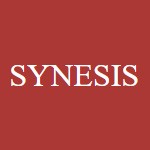Transreal newtonian physics operates at singularities
v. 7, n. 2 (2015) • Synesis: Revista do Centro de Teologia e Humanidades da Universidade Católica de Petrópolis
Autor: James A. D. W. Anderson, Tiago Soares dos Reis
Resumo:
Texto Completo: http://seer.ucp.br/seer/index.php/synesis/article/view/738

Synesis: Revista do Centro de Teologia e Humanidades da Universidade Católica de Petrópolis
Synesis, revista do Centro de Teologia e Humanidades da Universidade Católica de Petrópolis, é um veículo eletrônico de divulgação da pesquisa e da produção acadêmica e científica na área da filosofia, com publicação semestral.
As diretrizes editoriais da Synesis seguem o padrão do Sistema Eletrônico de Editoração de Revistas (SEER), estabelecido pelo IBICT a partir da plataforma Open Journal System (OJS), desenvolvida pelo Public Knowledge Project da Columbia University.
A partir de 2017, a Synesis publicará somente artigos inéditos de autores com doutorado ou em doutoramento, que submetem suas contribuições eletronicamente e aceitam as diretrizes da revista quanto à avaliação das contribuições por dois pareceristas às cegas (double blind peer-review), conforme explicitado na seção "Processo de Avaliação Pelos Pares". Os artigos dos demais autores só serão avaliados se forem em co-autoria com doutores.
Este periódico não cobra taxas para receber, avaliar ou publicar os documentos (artigos, traduções, etc.) submetidos à apreciação do seu Conselho Editorial.
